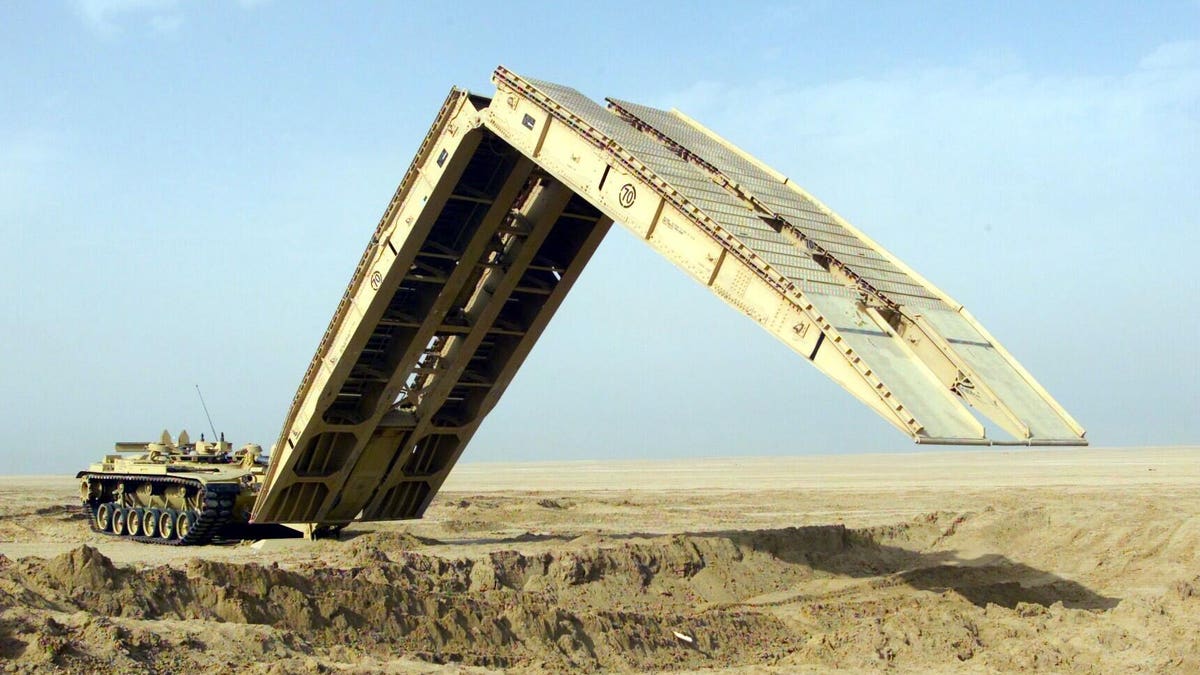We don’t know exactly how many Soviet-vintage armored bridgelayers the Ukrainian army had before Russia widened its war on Ukraine 19 months ago. We do know roughly how many AVLBs the Ukrainians have gotten from their foreign allies: at least 45, mostly from Germany and the United States. But we don’t know for sure whether the Russians have destroyed any of these bridgelayers.
What we can say for sure is, however many AVLBs the Ukrainians have—it’s too few. During a critical phase of an important fight in southern Ukraine’s Zaporizhzhia and Donetsk Oblasts back in June, a quartet of Ukrainian brigades had to halt their assault because the Russians had retreated across a stream, and there was just one available bridgelayer.
That’s one of the many surprising details in the latest report from analysts Jack Watling and Nick Reynolds from the Royal United Services Institute in London. Their description of the battles for Novodarivka and Rivnopil identifies some of the most important dynamics shaping Ukraine’s 2023 counteroffensive, which kicked off outside Novodarivka and other Russian-occupied southern settlements on June 4.
Ukrainian brigades initially tried assaulting Russian positions in long columns of tanks, fighting vehicles and armored trucks. But soft ground, dense minefields and accurate anti-tank fire doomed these assaults. On the main axes across southern Ukraine, brigades abandoned direct vehicular assaults in favor of slower, more deliberate infantry flanking attacks.
The Novodarivka-Rivnopil sector was no exception. The four Ukrainian brigades arrayed north of the settlements—the army’s 23rd and 32nd Mechanized and a pair of territorial brigades—directly attacked Novodarivka on June 4: T-64 tanks leading columns of MaxxPro armored trucks through a narrow lane engineers had cleared in the mines.
The trucks got stuck. And then a pair of Russian tanks opened fire from a nearby treeline. The Ukrainians retreated, tried a second direct vehicular assault that also failed then finally flanked the Russian positions on foot.
Having learned the hard way that frontal attacks weren’t going to work, the four-brigade force switched up its tactics as it cleared Novodarivka and rolled east toward Rivnopil. The exhausted mech brigades stayed back while a territorial infantry force—having borrowed a few tanks—feinted once, feinted again, then flanked the Russians.
The Ukrainian victory could have turned into something worse for the Russians—a rout—but there was a problem for the Ukrainians. A stream threading north to south, a few thousand feet east of Rivnopil. “Russian troops withdrew across a water obstacle behind the village and blew several agricultural dams to flood the area,” Watling and Reynolds wrote.
There on the far side of the flooded ditch, the Russians deployed anti-tank missiles. The Ukrainians might have tried to brave the missiles and force the watery fortification, but they were missing some critical equipment. “With only one obstacle-crossing vehicle available, the Ukrainian units had to pause to consolidate their gains.”
It should come as no surprise that there weren’t more AVLBs available to the four Ukrainian brigades around Rivnopil. Counting ex-Soviet MTU-20s, the entire Ukrainian ground forces—at least 72 brigades strong—might have, well, 70-something armored bridgelayers plus a few dozen unarmored bridgelayers. More or less one bridgelayer per brigade, but unevenly distributed.
That a shortage of bridgelayers slowed the Ukrainian advance past Rivnopil should be reminder to Kyiv’s allies that the Ukrainians don’t just need tanks, fighting vehicles and fighter jets. They need the boring, unsexy equipment, too—and lots more of it.
Read the full article here





